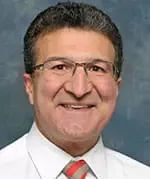
Gerry Chidiac
On Sept. 17, NDP leader Jagmeet Singh confronted a heckler who shouted “corrupted bastard” at him while he was walking outside the Canadian Parliament buildings. Singh stopped, turned around, and challenged two nearby men to face him directly. Both denied responsibility, claiming the insult came from behind them.
Lacking proof that either of the two men hurled the insult, Singh moved on, but the message was clear: Canadians have had enough of cowards who hide behind anonymity to spew insults and threats. Respect is earned by owning up to your actions, not by hiding behind a wall of fear and avoidance.
I may be nostalgic, but I remember when politicians debated ideas in the House of Commons and crafted sharp, clever insults while still respecting parliamentary decorum. Outside the chamber, they had meaningful discussions and created legislation that actually benefited Canadians. It may sound eccentric, but I found those question periods quite entertaining.
Today, Parliament has become an uglier place, much of it fueled by Conservative leader Pierre Poilievre, who has adopted a confrontational style popularized by U.S. Republican Speaker Newt Gingrich in the 1990s. That style suits Canada about as well as “Rollin’ with the Gangsters” fits Weird Al Yankovic’s White and Nerdy music video. Poilievre’s behaviour is out of place because Canada’s political system is “nerdy” but effective. Canadians deserve elected officials who are serious, not angry clowns chasing clickbait.
Poilievre has repeatedly shown himself to be unwilling or incapable of showing simple human decency. He often lashes out at reporters from media outlets he dislikes. After the attempted assassination of Donald Trump at a rally in August, where law enforcement snipers killed the gunman, Poilievre offered condolences for the victims but added, “I am also happy that the suspected shooter is dead.” What kind of leader feels “happy” about the death of a misguided young man with grieving parents? No other world leader made such a cruel remark.
It’s terrifying to contemplate where this disregard for human life is taking us. Recently, in Lebanon, electronic devices exploded, killing dozens, including children, and injuring thousands more. We can only imagine the devastation if one of these devices had made its way onto a commercial airliner. No one has claimed responsibility for what former British MP George Galloway called “the biggest act of mass terrorism since Sept. 11.” We all now feel less secure with our technology.
The best we can hope for is that the international judicial system holds those responsible accountable and that our leaders insist on upholding humanitarian law in the future.
Canada urgently needs stronger laws to protect its citizens, including our politicians. Much of the violence is fueled online, often resulting in anonymous threats that must be taken seriously. Our parliamentarians need to unite to create laws that protect civil liberties while holding criminals accountable. This is no easy task, but it must be done.
Earlier this month, Singh ended the supply-and-confidence agreement with the Trudeau government after securing significant improvements in dental care for millions of Canadians and making progress on pharmacare legislation. However, while the dental care program has been successfully expanded, the pharmacare plan is still in development.
If parliamentarians fail to collaborate, an early election could potentially hand power to Pierre Poilievre’s Conservatives. This raises the question: what would it mean for Canada if Poilievre were given a prominent platform on the international stage? His confrontational style and preference for conservative, business-first policies could drastically alter Canada’s traditionally progressive stance in global forums.
Previous Canadian leaders earned our country a global reputation for being principled, congenial, and tough. Thank you, Jagmeet Singh, for reminding us how this is done.
Gerry Chidiac specializes in languages and genocide studies and works with at-risk students. He received an award from the Vancouver Holocaust Education Centre for excellence in teaching about the Holocaust.

